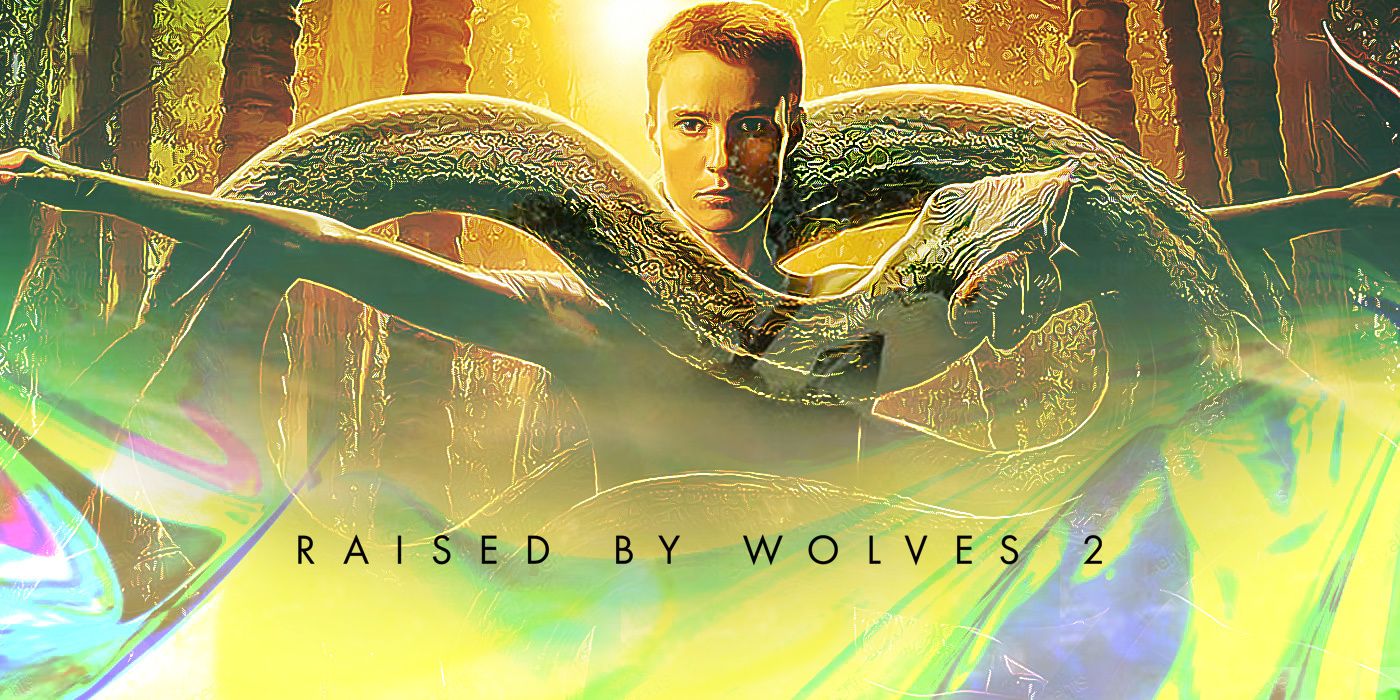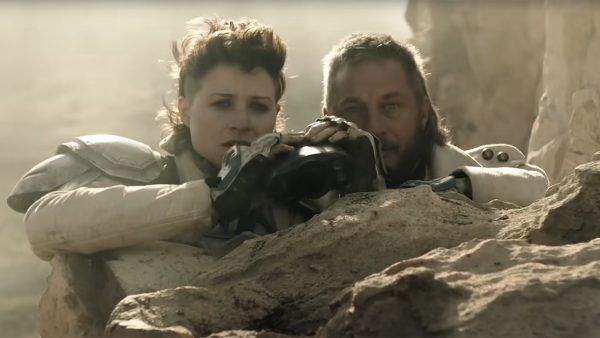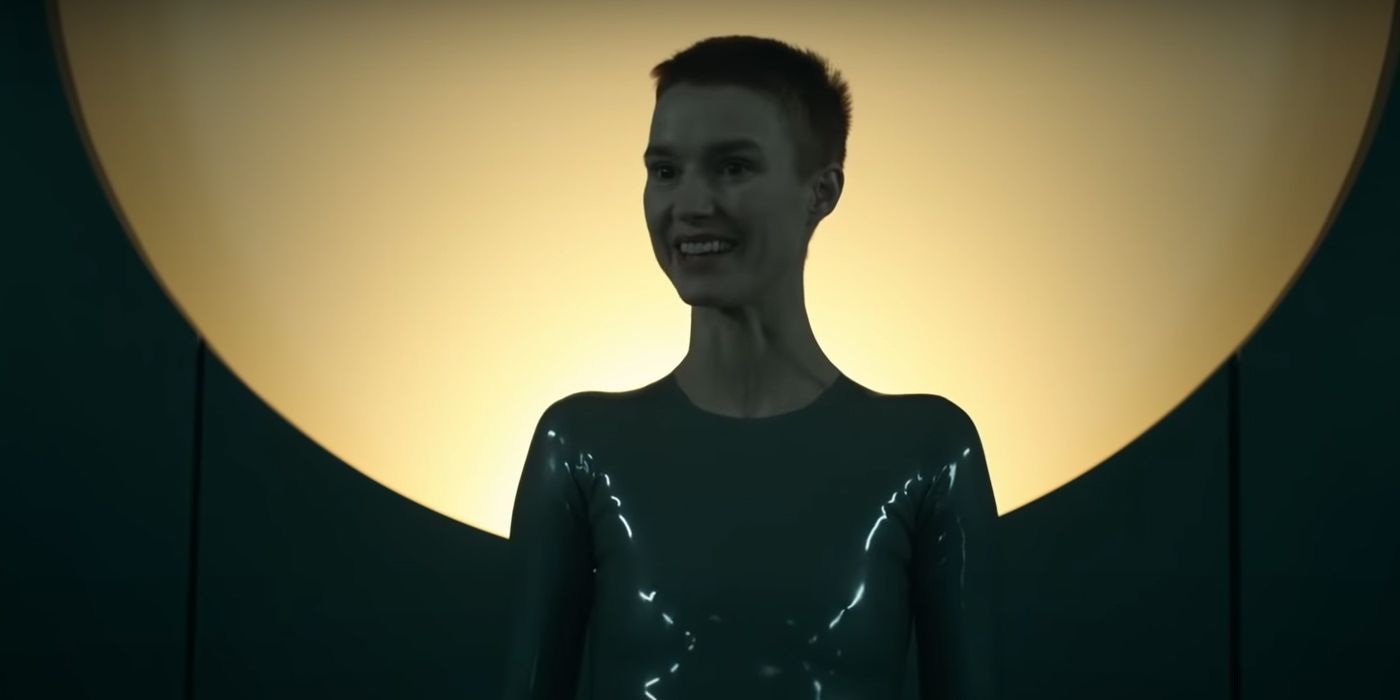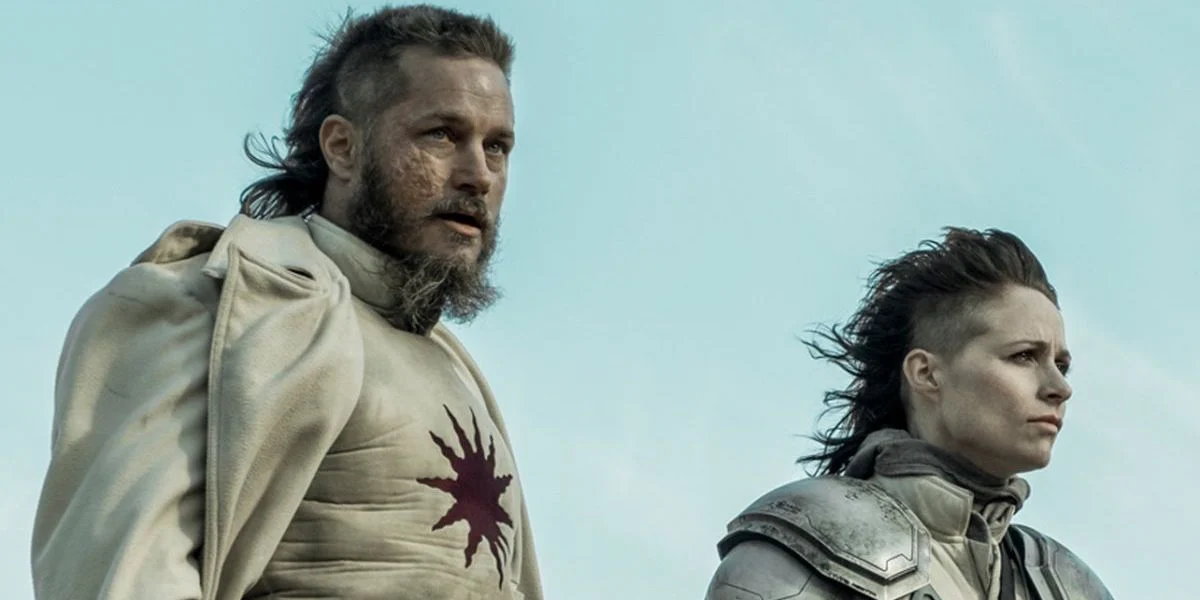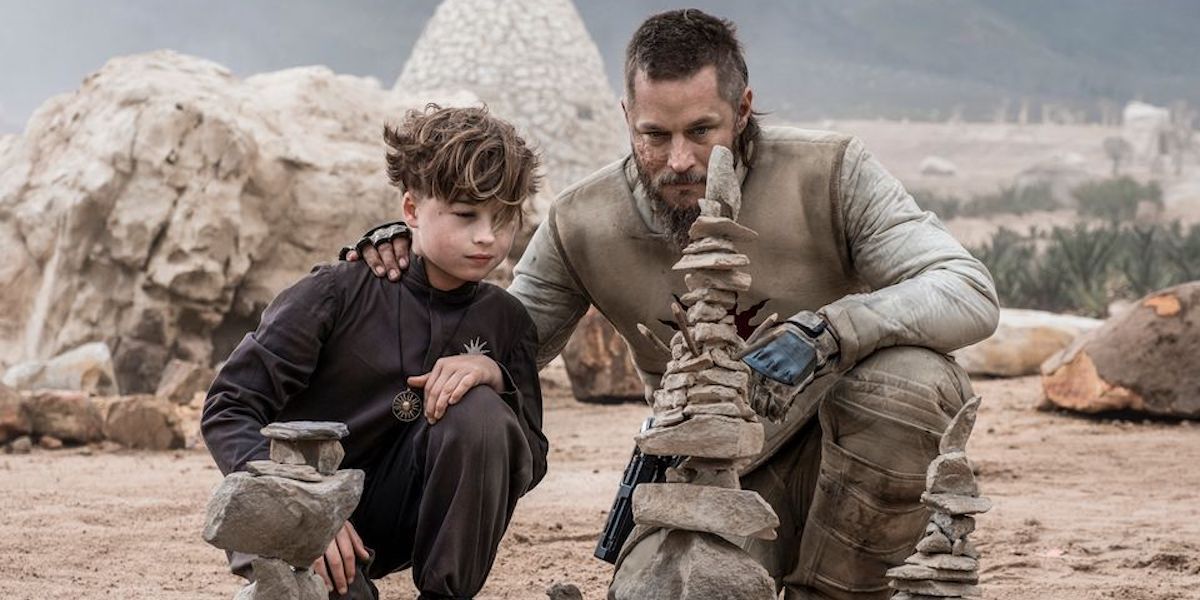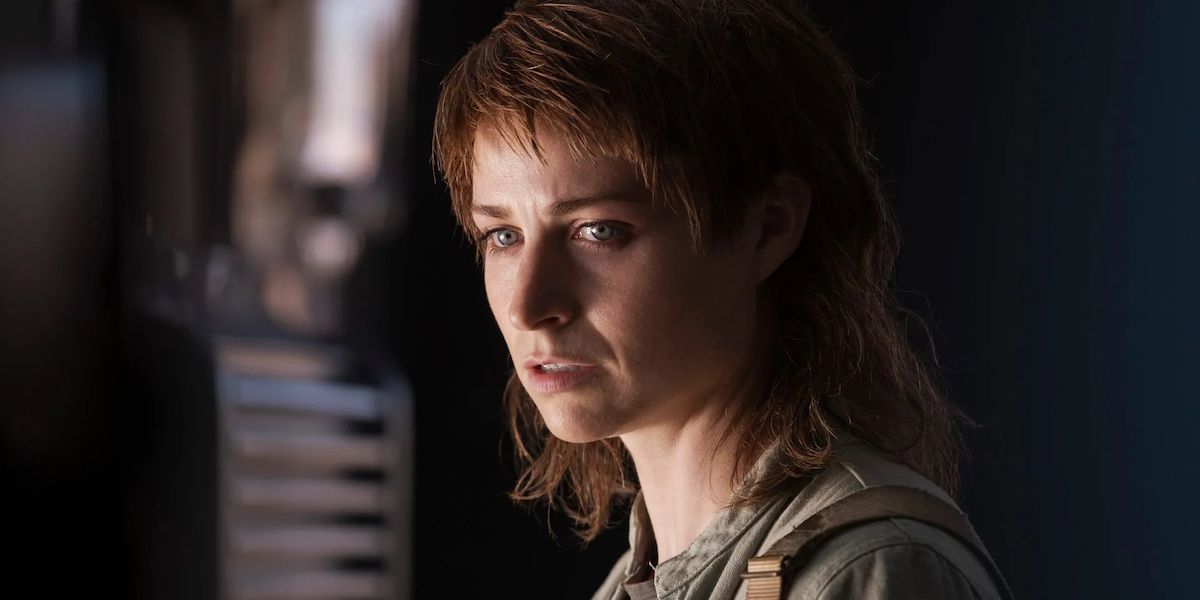Ridley Scott's Raised by Wolves on HBO Max is one of the most compelling and unique TV series of recent memory, due in part to the somewhat paradoxical nature of its drama. The tension of the story is drawn, not from breathtaking action sequences, but from the interaction and overlap of the significant thematic elements that form the foundation and plot of the story. It is a sci-fi series that is simultaneously set in the future and telling the story of the dawn of humanity. It explores the opposing forces of religion and atheism while also unpacking the strange ways in which the two opposites are surprisingly similar. Human development and the uncanny valley of android existence intersect (and sometimes clash), while introducing the question of the point at which android existence ends and human existence begins.
One of the best things about the series, and perhaps its greatest accomplishment, is the way that it dances in a precarious balance between almost all of these opposing forces, without ever definitively coming down on one side or another. Each opposing side consequently is given their due as the story progresses, and each is seen to have its advantages and limitations in the way that it relates to its opposing force, while continually resisting any easy categorization.
One of the clearest and most significant themes in the story is in the development of the idea of the true nature of both family and religion. The story begins with a plot that is simultaneously natural and unnatural: a pair of refugees from a destructive war find an oasis where the war can no longer touch them, and start a family together on a farm, scratching out a simple existence. Of course, at the same time, this farm is on a planet in a distant solar system, the refugees are androids raising frozen human embryos, and are atheists tasked with raising their “children” to also be atheists, but in the way of a remarkably traditional (almost religious) view of family and education.
The android “parents” are perfect encapsulations of this dynamic of opposing tendencies. As androids, they are capable of perfectly mimicking human behavior — almost. A smile that is too wide and too perfect, or a reaction that is clearly perfectly calibrated — and consequently unnatural. The android known as “Mother” (Amanda Collin) nurtures her six “children” who have no genetic relationship to her, but in a seemingly authentic way. However, Mother also crashes a ship full of thousands of people, murdering them and stealing a handful of children to replace the ones that she lost, to recover her perfect “family.” The character called “Father” (Abubakar Salim) is programmed with the ability to make the worst of “dad jokes,” and displays a traditional protective tendency over his “children,” but also can be erased and reset, forgetting all about his former “self.”
The atheist-religious dynamic is also present throughout the entire development of the story, blurring the lines between what are commonly seen to be two utterly opposed ideas. But while the androids are tasked with raising a group of new atheist children, their story plays out a great deal like the Genesis story and the Garden of Eden. A sinister serpent skeleton scowls over their homestead; division in the vision of the future rears between the two androids that are designed to work together; they refer to religion as “lies” but also understand the expedience of lies to teach their children. Mother particularly frequently finds herself referring to her “creator” in remarkably religious terms and insists in a belief in their mission that all sounds a great deal like a kind of religious creed.
A similar family and religious dynamic plays out on the other side of the drama. The initial counterparts to the android Mother and Father are Marcus (Travis Fimmel) and Sue (Niamh Algar), who are religious parents among the victorious “Mithraics” in the war, taking their son Paul (Felix Jamieson) to an earthly paradise promised to them on the planet of the atheist family. Only, the audience soon finds out that Marcus and Sue are not Mithraics at all: they are atheist soldiers who murdered Paul’s real parents and took their identities, pretending to be his parents in order to escape death.
Nonetheless, despite this destructive past, Marcus and Sue also begin to display very natural parental instincts towards their “son” Paul, and begin to see him more and more as their real son; they are desperate to get him back when he is lost, take the time out of their elaborate subterfuge practices to play with him and encourage him, and according to Paul himself, they are apparently better parents than his “real” ones were.
Marcus and Sue are also at the nexus of the religious drama and dynamic as well. While they are initially adamant atheists, learning their Mithraic creed only to blend in and avoid detection, Marcus begins having visions and hearing the voice of the god Sol, turning eventually from an atheist refugee to a Mithraic religious leader, before transforming again into the leader of a reactionary religious splinter group of the church of Sol.
Sue as well finds the path difficult to tread and struggles with the religious-nonreligious opposition. She remains far more adamant than Marcus in her nonbelief, and is concerned when he begins to hear voices and believe in Sol. But she, too, is visited by an unexplained vision when she finally turns to Sol in prayer, giving her the solution to an incurable disease Paul contracted that she had been unable to cure by any scientific method at her disposal. She insists that the vision was an alien transmission and not from a god, but her insistence on a “natural” explanation also has the ring of a religious creed to it.
The most compelling part of the story of the series is the way that it dances between so many opposing extremes on its way to crafting a fascinating story. The evils perpetrated by Mithraic society are explored, but so is the problematic nature of an atheist society run by a “perfect” computational machine. Sol may be a god, but also may be an alien transmission: events of the plot lean in both directions at various points, and any time the pendulum begins to swing in one direction, it immediately swings back to the opposite side. Sol is also seen to be variously good and evil, with a strange mix of godly and demonic elements in his religious adherents. Marcus, Sue, Mother, and Father are not related to their “children,” but still love them as true parents would. Atheists and Mithraics are seen to be remarkably similar in many ways, in the various references to “Creators” and moral purpose. And, of course, the classic gray area between human and android is explored throughout.
Where the story will end is anyone’s guess at this point, but while the mysteries of the plot and the source of Sol must be paid off, one of the best elements of the story to preserve through any revelation is that continual delicate balance between extremes that has made the story so compelling throughout the series so far.

